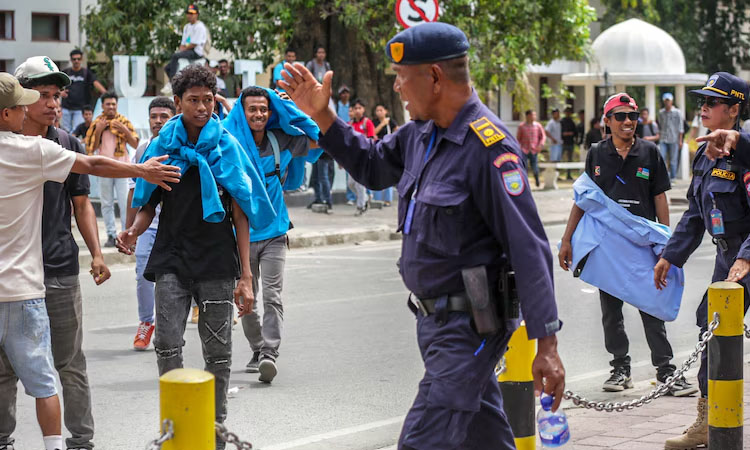News Flash

DILI, East Timor, Sept 26, 2025 (BSS/AFP) - East Timor voted on Friday to scrap the lifetime pension law for MPs and public officials, following student-led demonstrations against lavish perks in one of Southeast Asia's poorest countries.
Former MPs and some public officials are entitled under a law passed in 2006 to a pension equivalent to their salary.
But 62 members of parliament voted unanimously on Friday to pass a new law that scrapped lifetime pensions for MPs, former presidents, prime ministers and cabinet ministers.
"To all university students, your demands have been fulfilled. Please stop the demonstrations," Olinda Guterres, an MP from the Khunto party, said after the vote.
Protests broke out last week in the capital, Dili, with thousands of demonstrators demanding that parliament cancel a $4.2 million plan to purchase SUVs for lawmakers.
The protests later widened to include other issues, including lifetime pensions for former MPs and public officials.
"Our fights are not futile; this is what we want. Now that the parliament has made a good decision, the funds can be allocated for productive sectors such as agriculture, health, and education," Fortunata Alves, a 23-year-old university student, told AFP.
The law will be sent to President Jose Ramos Horta to be signed before it takes effect.
The controversy stemmed from a budget item, approved last year, to purchase Toyota Prado SUVs for each of the country's 65 members of parliament.
The plan triggered widespread anger in a nation where more than 40 percent of the population lives in poverty, according to the World Bank.
Thousands of protesters rallied for two consecutive days last week, with demonstrators hurling rocks at police, who responded with tear gas.
The parliament eventually bowed to public pressure and unanimously adopted a resolution to "cancel (the) new vehicle procurement process listed in the 2025 budget".
East Timor, which gained independence from Indonesia in 2002 after more than two decades of occupation, continues to grapple with high inequality, malnutrition and unemployment.
Its economy remains heavily reliant on its oil reserves.